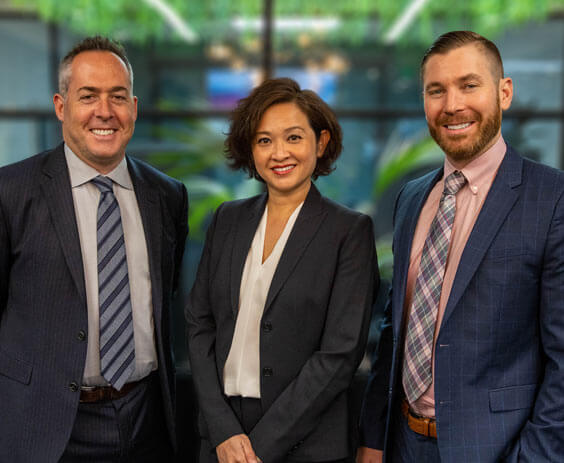Compensatory Damages VS. Punitive Damages
I was referred to Jesse from my chiropractor after he reccomended I give him a call a couple of times. I was nervous to call an attorney, but so glad I did! Jesse Bablove handled everything while also ensuring I received any aftercare I needed to recover from the accident! Recognize your value and worth and give them a call. Thank you guys for going above and beyond!
Melanie TydingcoMr. Bablove managed to help me receive the maximum payout possible from my auto accident. He was very responsive and made sure I got every bit of medical attention I needed. He’s a good guy, I would highly recommend him.
Jeff RenfroUpon being referred to the guys at Kohan & Bablove Injury Attorneys, I spoke with Jesse about my case, and from the get go he was super hands on and a genuine guy who treats you like family and cares for the well being of his clients. I would definitely recommend Jesse and his team to one of my friends or family members!
jared batsonOne of the most common terms you will hear when talking about court cases is damages. It doesn’t refer to the literal damage caused. Rather, it refers to the financial award sought after in a personal injury case. One party pays the monetary equivalent of the damage they caused to the other party.
There are different kinds of damages under the law. Read on to learn more about them both and how a reputable lawyer can help you maximize your personal injury settlement.
What Are Compensatory Damages?
True to its name, compensatory damages are awarded as a form of compensation. After the other party has proved the monetary equivalent of their loss or injury, the court will order the party at fault to pay that amount. Compensatory damages consist of economic and non-economic damages which are designed to make the plaintiff whole after suffering a loss caused by the defendant.
Economic damages are meant to compensate the victim for their tangible loss, like medical bills, property damage, lost income, lost earning capacity, and any other form of loss that comes with a price tag.
Non-economic damages compensate victims for their intangible loss, like emotional anguish, physical pain, loss of consortium, disfigurement, loss of enjoyment of life, etc.
Your compensatory damages should address every way the incident has negatively affected your life and reflect the caliber of injury, loss, and hardship caused by the defendant’s negligence.
What Are Punitive Damages?
Unlike compensatory damages, punitive damages are awarded not as compensation but as a penalty or punishment to the party at fault.
The amount is strictly up to the court to determine, along with determining whether the defendant is liable for punitive damages in the first place.
Texas law labels punitive damages as exemplary damages, which means the damages are awarded to set an example.
Is There a Cap on Damages?
Compensatory damages are limited to the amount you can prove arose out of the defendant’s injurious actions.
According to Texas law, the maximum amount of punitive damages a court may award is limited to:
- Two times the amount of economic damages plus an amount equal to any noneconomic damages found by the jury, not to exceed $750,000; or
- $200,000, whichever is greater.
Call a Lawyer Today
When you’re hurt, and at a loss, you need compensation to fund your recovery. To help ensure you recover as much damages as you are entitled to under the law, you need to prove both the entitlement and the amount.
This requires technical experience in procedural law, and you don’t want to have your award reduced because of mere technicalities.
When it comes to maximizing recovery, it’s best to have the services of an experienced attorney by your side. At Kohan & Bablove Injury Attorneys, we work on a contingency fee basis, which means we don’t get paid until you do! Our personal injury lawyers can provide the best legal representation to ensure your case is heard properly in court.
When you’re ready to take back control of your life, schedule your free consultation by calling 949.535.1341 or fill out the form below!
For more quick answers, check out our personal injury FAQ page.


